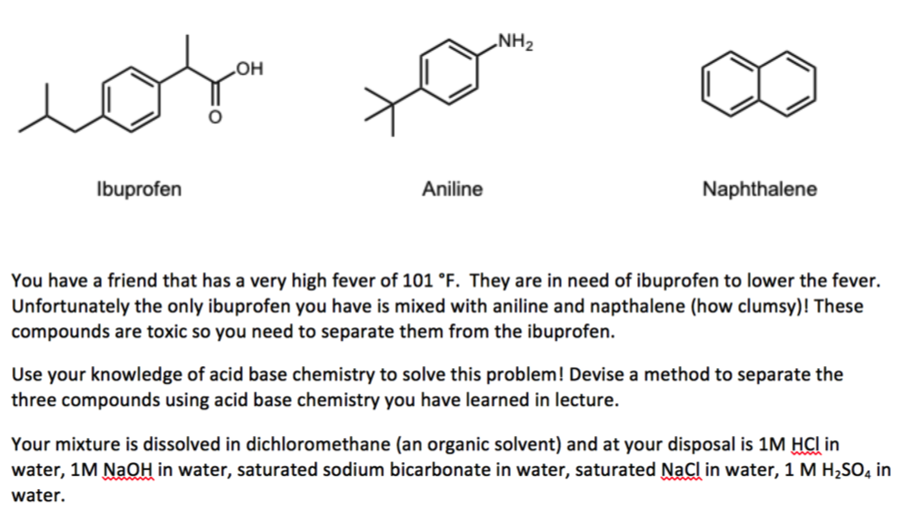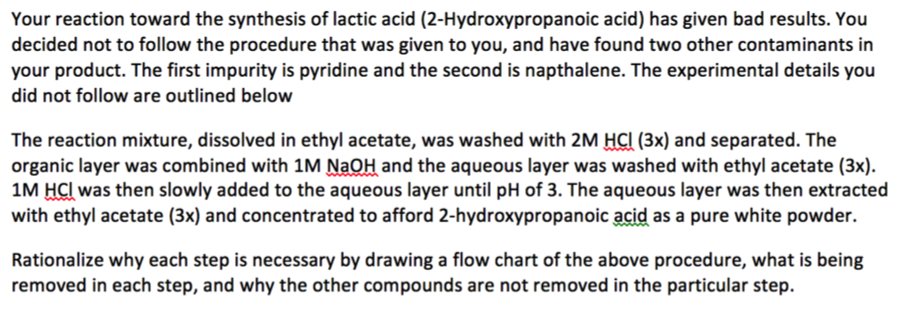Organic Chemistry

Thomas Struble, Chemistry, working with Jeffrey Johnston, Professor of Chemistry
Overview
I have noticed in the first few years of teaching labs and recitations at Vanderbilt University that there is a major problem for students making a connection between theory and practice. While I was in undergraduate the best learning technique was working in groups of peers on practice problems. I noticed that if one of us in the group could understand the concept, often we could more effectively convey this understanding to our peers compared to our instructors.
To this end, I wanted to create a module for students in the advanced placement organic chemistry class at Vanderbilt University to have this same opportunity with the support of the instructor and teaching assistant. Not only do I want to develop a useful tool for students to rely on the rest of the semester, but also I will be researching the most useful type of question for this particular concept.
Initially this module will be implemented for one of the most important topics for first semester undergraduates: acidity concepts. Acidity lays the base for many of the concepts that are learned throughout the semester. We hypothesize that creating small groups of students (5-8 people) to work on a practical lab problem will aid in bridging the gap between theory and practice. By placing students into groups with a variety of levels of understanding, we hope to foster a safe peer-teaching environment through the use of online discussions. In addition, we believe this will create small groups for the students that they can use the rest of the semester in order to help one another.
By the end of the module the students will be able to:
1) Understand the basic underlying principles that contribute to acidity (Brønsted and Lewis):
- Electronegativity and size
- Inductive effect
- Resonance
- Charges
2) Understand pKa:
- How it is measured and what it is a measure of (thermodynamic equilibrium)
3) Apply to a system that is foreign (i.e. new functional groups that were not in examples) by simply using theory
4) Predict (± 4) where a molecule lies on the pKa scale
5) Predict the equilibrium of reaction mixtures using the understanding of pKa’s
6) Examine a given situation from experimental situations, interpret the results, and provide a reasonable explanation for the observed results.
The students will be given a pre-module quiz to assess their current knowledge about the subject. These scores will be entered into an excel sheet which will sort the students based on their scores. The students will be put into small groups, each allotted a Discussion forum on Blackboard.
Each group will receive a different question about purification of a set of three organic compounds using only acid/base chemistry and extractions (a common lab technique). To help the students get started, all students will view an introductory video that walks them through an expert approach to solving these types of problems.
Then, each group of students will discuss their specific problem together in their Discussion forum and individually construct a flow chart to show how they will purify the compounds. After the flow charts are submitted, videos explaining the solution to each problem will be released to all students. One example is shown here:
Finally, after the module a short quiz will be given in order to gauge the level of comprehension gained from the online module.
A key element of this project is that there are two sets of questions with different types of construction. The pre/post quiz scores will be analyzed to try and see if one question was superior to the other. An example of each is shown below:


Finally, we will use an end-of-semester survey to probe students’ perceptions of the online discussion and group problem-solving exercise.
